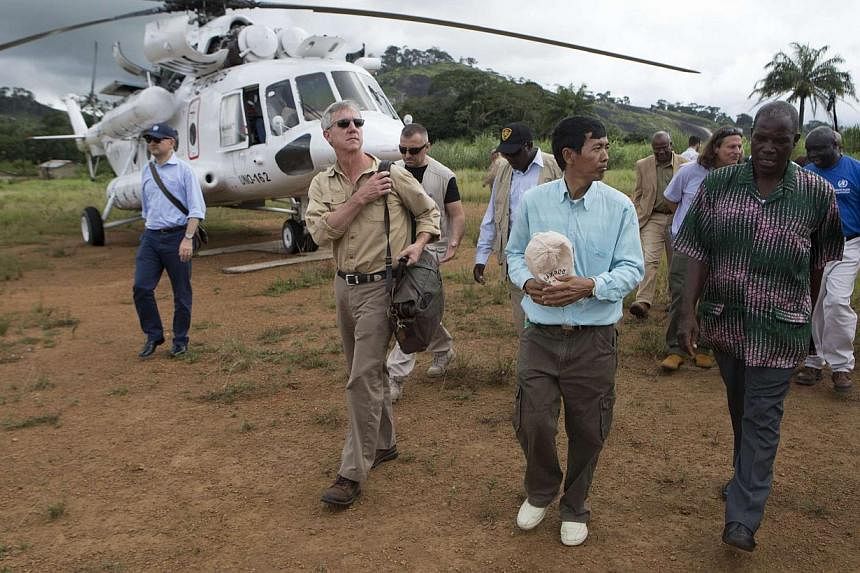When I first arrived in Guinea three months ago, we realised within one week that the situation was extremely serious. The Ebola centres were overflooding with patients. The conditions were just as dire in neighbouring Liberia. At one point, as many as 50 dead bodies were being carried out of the MSF Ebola centre in the capital Monrovia every day. Patients knew there was little chance of recovery. But they courageously faced Ebola by coming to the centres to protect their family from getting infected.
Until today, nobody has a full understanding of this outbreak. Not a single specialist in the world can predict what's going to happen next. Around seven months ago, nobody would have expected that this outbreak could reach three capital cities in West Africa. The geographical spread, duration and the number of cases in this outbreak is totally unprecedented.

In Foya, a town nine hours' drive from the capital Monrovia, the MSF Ebola centre was designed to accomodate only 20 patients and we had to expand it to take in 140 patients. We knew that there were people dying in the villages but these people were not reported to the health authorities. We knew then that the scale of the outbreak was much bigger than the official reports.
At one point, we had to stop accepting patients in Foya for 24 hours to enhance triage of patients and to reorganise ourselves. It was a tough decision to make but it made a huge difference to our operations. We allocated more resources for patients who had a higher chance of survival and for those who would benefit the most from medical care. The patient numbers were so high that it felt as though we were working in a war zone.
Over recent weeks, we have seen the patient numbers in Foya coming down. This is good news, but we have to remain vigilant. Our team in Foya, northern Liberia, is reinforcing our health promotion messages to the local community.
The situation still remains catastrophic in many other parts of Liberia, especially in the capital Monrovia. In the neighbouring country of Sierra Leone, not one district has been spared from the epidemic. The organisation operates six Ebola management centres across West Africa. In Guinea, every MSF Ebola centre has reached its capacity.
It is a very good step that some states and other organisations have turned their commitments into action, but progress has been too slow. Setting up Ebola centres is not enough. The centres must follow strict safety procedures, and this needs to be implemented and monitored closely. The centres must be staffed with trained personnel so that they can start supporting patients as soon as possible.
Every minute of delay is a matter of life and death. To prevent more lives from being lost, we need to act fast. The outbreak is far from being stabilised.
We need many more resources - beds, protective equipment, supplies and trained personnel. It is also worrying that after more than seven months, the curve of the epidemic is not looking good. Historically, the key to controlling Ebola epidemic is awareness and acceptance by the population. As soon as people understand about the disease and take adequate preventive and hygiene measures, the curve of the epidemic will slope downwards. But until today, we have yet to see a significant change in people's habits. The number of patients is still not going steadily down.
It is very stressful to work under such conditions, but many staff including myself, want to go back. You are fearful, apprehensive and tense, but above all, there is a sense of courage among the team members. It is satisfying knowing we are all in the same boat, working to provide life-saving help to people who would otherwise be neglected.
Dr Dorian Job is an emergency medical doctor based in Geneva, Switzerland. He managed MSF Ebola centres in Guinea and Liberia from last July to August. He then returned to Geneva where his health was closely monitored over the 21-day Ebola incubation period. He visited his family in Jakarta two weeks ago.

